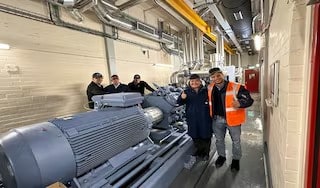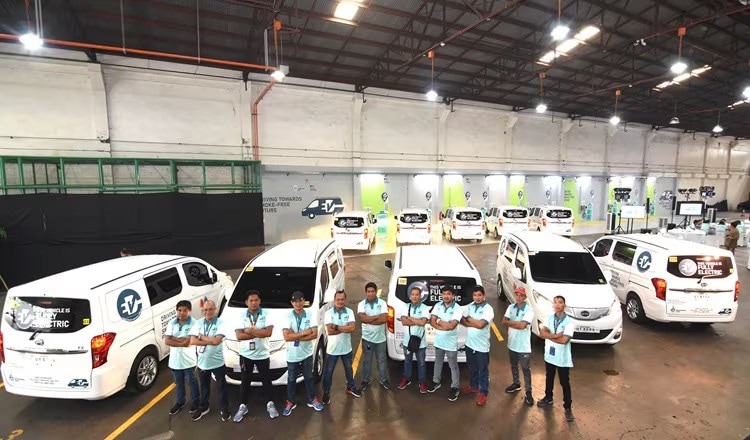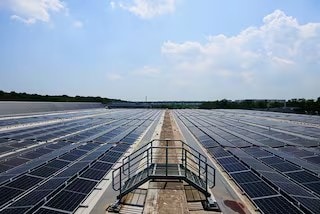In recent years, our climate journey has been defined by significant achievements that reflect our steadfast dedication to responsible growth. Our net revenues have increased by more than a quarter between 2019 and 2024—strongly driven by our smoke-free business. Yet, within the same timeframe, we have consistently reduced greenhouse gas emissions, not only within our direct operations—where our control is greater—but also throughout our broader value chain, which accounts for the vast majority of our overall impact.
By focusing on material climate risks and opportunities, implementing cost-effective interventions, and maintaining robust disclosure practices, we are strengthening PMI’s ability to deliver sustained, long-term value. Reducing greenhouse gas emissions while adapting to the effects of climate change are important components of our long-term value creation strategy and serve as key levers for operational efficiency, risk mitigation, and stakeholder trust.
Through a deliberate transition toward renewable energy sources, the adoption of energy-efficient processes and new technologies, and an ongoing commitment to supply chain engagement, support, and transparency, we have meaningfully decreased our carbon footprint and bolstered the resilience of our organization and value chain. We have placed particular emphasis on our agricultural supply chain, where most of our inherent risks lie, working closely with suppliers and farmers whose tobacco we use in our products. By fostering these partnerships, we have promoted continuous improvement at every stage of production, helping to strengthen resilience and drive measurable progress toward our climate objectives.
Today we introduce PMI’s second Climate Transition Plan (CTP), a refined strategic roadmap that better aligns our climate-related ambitions with the maturity of our business transformation and the operational realities of our global footprint. It is also more attuned to the evolving policy and regulatory landscape, as well as to our stakeholders’ expectations, including those of our investors.
This evolved approach is informed by a thorough understanding of which elements within our value chain we can directly influence versus those where our impact depends on external collaboration and systemic change. This updated plan presents targets that are grounded in robust data and operational experience. These targets are deliberately integrated into our core business strategy to drive the most meaningful and scalable climate impact through a disciplined and precise approach.
We are focusing our resources and efforts on the most material sources of emissions and critical value chain dependencies, ensuring our plan is both accountable and pragmatic. By concentrating on areas where we can achieve the greatest impact, our CTP is now better designed to support business performance, driving operational strength, agility, and competitiveness across multiple fronts. Our efforts reflect not only our commitment but also our ability to adapt to changing circumstances and capitalize on emerging opportunities.
Our climate strategy and decarbonization ambitions are grounded in a thorough understanding of the risks and opportunities we face. Our decarbonization plan is anchored in the rigor of a comprehensive Climate Change Risks and Opportunities (CCRO) assessment and both are integrated into this single cohesive CTP.
Developing and implementing robust mitigation and adaptation strategies enables us to prevent or reduce the impact and likelihood of climate-related risks while simultaneously strengthening our organization, building a resilient business, and continuing to lead the way in environmental stewardship by maximizing opportunities arising from climate transition pathways.
These comprehensive efforts unlock tangible value through strategic positioning in emerging markets, cost optimization in energy procurement, and potential access to new revenue streams in the evolving low-carbon economy. Furthermore, by
integrating both physical and transition climate-related risks and opportunities into our Enterprise Risk Management (ERM) framework, we enhance our ability to proactively identify, assess, and respond to climate challenges while strategically capitalizing on transition opportunities across our operations.
As climate regulation and stakeholder scrutiny continue to evolve, we exercise pragmatic leadership and remain focused on results. A business that operates sustainably is one that actively considers how the world is changing, prepares for emerging challenges, anticipates future opportunities, and builds resilience into its operations. This is the approach we follow, which ensures not only our success in the short term, but more importantly, our ability to thrive and create lasting value over the long term.
Our commitment to sustainability is not just about being at the forefront of environmental stewardship—it is about building a business model that is robust and positioned for enduring success in an evolving global landscape. In a rapidly changing economy, this strategic approach positions us well not just to adapt, but to thrive.
Jacek Olczak, Chief Executive Officer

.jpg)


